Deborah L. McCarragher's Blog, page 27
November 12, 2010
Guest Author Laurie L Webb & her book "Holy Spirit Made Me Do It"
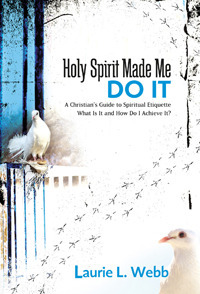 Please welcome guest author Laurie L Webb.
Please welcome guest author Laurie L Webb. Her book, Holy Spirit Made Me Do It: A Christian's Guide to Spiritual Etiquette is a how-to manual for living the Great Commission each day. Drawn from years of ministry and Bible-study teaching, Laurie lays out a well-engineered framework for more effectively ministering to the unsaved by fostering greater unity within the body of Christ. Laurie defines spiritual etiquette as the manner in which believers conduct themselves in a gathering, specifically in the areas of: Spiritual Maturity, Spiritual Excellence, Spiritual Unity, and Spiritual Submission to Authority. She rounds out her message with a richly textured discussion on who the Holy Spirit is, the giftings of the Spirit, and the qualities necessary to operate in the commands of the Bible.
Laurie L. Webb is the Director of Spirit Life School of Ministry, as well as an Instructor. She teaches a variety of subjects, ranging from spiritual etiquette to finances. Spirit Life School of Ministry
 Laurie is a Christian speaker who teaches the Word of God with profound knowledge yet simplifies it so it is understandable to anyone of any age or maturity level. She infuses humor in her teaching by using her own life experiences to bring home a Biblical point. She gets very excited when she sees "revelation knowledge" light up her listeners' eyes.
Laurie is a Christian speaker who teaches the Word of God with profound knowledge yet simplifies it so it is understandable to anyone of any age or maturity level. She infuses humor in her teaching by using her own life experiences to bring home a Biblical point. She gets very excited when she sees "revelation knowledge" light up her listeners' eyes. Laurie graduated from Georgia College with a BSN in Nursing in 1986 and has since worked as a registered nurse in a variety of specialties. She attended Family Bible Institute and is an ordained minister, and has taught many Bible studies in her local ministry and community. She is married to Buddy, her husband of 25 years, and they have two daughters: Lindsay and Katie. They currently reside in Macon, Georgia.
I recently read Laurie's book and I want to wholeheartedly endorse it! This is my brief review:
Laurie Webb has, in Holy Spirit Made Me Do It: A Christian's Guide to Spiritual Etiquette, laid out an orderly and comprehensive study of what Holy Spirit is and is not. She equips the Body of Christ with scriptural evidence and solid teaching relating to how this subject has been misunderstood and misappropriated in worship services. She has a refreshing way of using biblical passages and word study to educate the reader about Holy Spirit's ministry and mandate from Christ. Her references to the original Greek language word meanings and context in scripture further the reader's overall study experience. I especially liked the section dealing with etiquette within the church body. Opinions differ among the various Christian denominations with regards to Holy Spirit's ministry today. However, one thing is certain - Holy Spirit has not changed, as Jesus Himself is unchanging. (Hebrews 13:8)
Laurie has two sections of study questions that pertain to the book's subject matter. This would make an excellent self or group study on Holy Spirit. She covers spiritual maturity, unity, submission to authority, and excellence with regards to Christians that gather together to worship. Her book edifies believers and teaches with clarity how you as an individual can effectively live out the Great Commission while being led by the Spirit. Using the Apostle Paul's teaching and scripture references from both the Old & New Testaments, Laurie lays out a solid lesson on this controversial subject. She has done a masterful job of presenting biblical truth, and I recommend reading her book if you want an introduction to or a refresher course on knowing, relying upon, and submitting to Holy Spirit in your life.
Deborah McCarragherAuthor of Mission Possible
 Laurie's life ambition is to fulfill her God-given purpose with excellence and to inspire others to do the same. For more information on her book and ministry, please visit her website at http://www.lauriewebbministries.com/ To purchase the book visit Amazon.com or ChristianBook.com . You can also find Laurie on social networks such as Facebook, LinkedIn, and Twitter from her website. To contact Laurie, e-mail Laurie@LaurieWebbMinistries.com .
Laurie's life ambition is to fulfill her God-given purpose with excellence and to inspire others to do the same. For more information on her book and ministry, please visit her website at http://www.lauriewebbministries.com/ To purchase the book visit Amazon.com or ChristianBook.com . You can also find Laurie on social networks such as Facebook, LinkedIn, and Twitter from her website. To contact Laurie, e-mail Laurie@LaurieWebbMinistries.com . 

Deborah is the author of a Christian non-fiction book titled "Mission Possible". It is written for women who love the Lord Jesus, but their spouse doesn't share their passion. It will encourage and challenge the reader to embrace God's promises for their spouse and future together.
Published on November 12, 2010 18:56
November 8, 2010
A Veterans Day Salute and Coping With Life in the Military
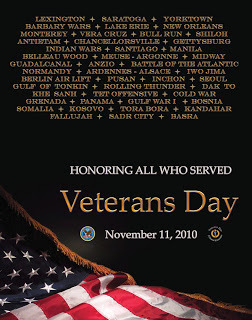 Veterans Day originated as "Armistice Day" on Nov. 11, 1919, the first anniversary of the end of World War I. Congress passed a resolution in 1926 for an annual observance, and November 11th became a national holiday beginning in 1938.
Veterans Day
is not to be confused with Memorial Day -- which honors American service members who died in service to their country, or as a result of injuries incurred during battle, while
Veterans Day
pays tribute to all American veterans--living or dead--and gives thanks to living veterans who served their country honorably during war or peacetime.
Veterans Day originated as "Armistice Day" on Nov. 11, 1919, the first anniversary of the end of World War I. Congress passed a resolution in 1926 for an annual observance, and November 11th became a national holiday beginning in 1938.
Veterans Day
is not to be confused with Memorial Day -- which honors American service members who died in service to their country, or as a result of injuries incurred during battle, while
Veterans Day
pays tribute to all American veterans--living or dead--and gives thanks to living veterans who served their country honorably during war or peacetime.In 1954, President Eisenhower officially changed the name of the holiday from Armistice Day to Veterans Day . In 1968, the Uniform Holidays Bill was passed by Congress, which moved the celebration of Veterans Day Veterans Day to the fourth Monday in October. The law went into effect in 1971, but in 1975 President Ford returned to November 11, due to the important historical significance of the date. Veterans Facts
The brave men and women who serve and protect the U.S. come from all walks of life; they are parents, children and grandparents. They are friends, neighbors and coworkers, and an important part of their communities. Here are some facts about the current veteran population of the United States.
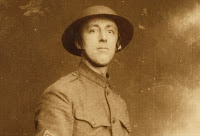 9.2 million veterans are over the age of 65. 1.9 million veterans are under the age of 35. 1.8 million veterans are women. 7.8 million veterans served during the Vietnam War era (1964-1975), which represents 33% of all living veterans. 5.2 million veterans served during the Gulf War (representing service from Aug. 2, 1990, to present). 2.6 million veterans served during World War II (1941-1945). 2.8 million veterans served during the Korean War (1950-1953). 6 million veterans served in peacetime.
Veterans Day
continues to be observed on November 11, regardless of what day of the week on which it falls. The restoration of the observance of Veterans Day to November 11th not only preserves the historical significance of the date, but helps focus attention on the important purpose of
Veterans Day
: A celebration to honor America's veterans for their patriotism, love of country, and willingness to serve and sacrifice for the common good.
9.2 million veterans are over the age of 65. 1.9 million veterans are under the age of 35. 1.8 million veterans are women. 7.8 million veterans served during the Vietnam War era (1964-1975), which represents 33% of all living veterans. 5.2 million veterans served during the Gulf War (representing service from Aug. 2, 1990, to present). 2.6 million veterans served during World War II (1941-1945). 2.8 million veterans served during the Korean War (1950-1953). 6 million veterans served in peacetime.
Veterans Day
continues to be observed on November 11, regardless of what day of the week on which it falls. The restoration of the observance of Veterans Day to November 11th not only preserves the historical significance of the date, but helps focus attention on the important purpose of
Veterans Day
: A celebration to honor America's veterans for their patriotism, love of country, and willingness to serve and sacrifice for the common good.I come from a family of veterans. My Dad is a retired U.S. Naval aviator, my husband is retired U.S. Naval Reserves, and our son is a U.S. Marine Corps officer. My husband's Dad served over 20 years in the U.S. Air Force. I spent the first 18 years moving to various duty stations with my family across the US and overseas. It was an interesting life, and I wouldn't trade it for anything. My husand and I live presently in a large "Navy town", and Florida has a large active-duty and retired military veteran population.
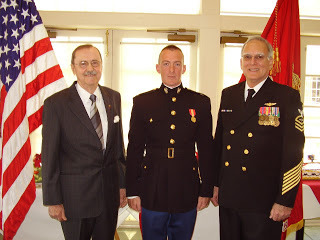
My friend Kathryn Sneed has a wonderful Christian Blog for Military Wives - Singing Through the Rain The following is an excerpt from two of her posts regarding military life...
Three things Kathryn likes about being a military wife: 1. Having support from other wives going through the same thing you are.I have met so many wonderful military ladies both online and in person, and I love all the support groups I have found as well. It is a big help to be able to go through stuff and know that someone else understands!
2. Being patriotic and proudI know that you do not have to be a military wife to be patriotic and proud, but becoming a military wife has made so much more in tune to what people have done for our country past and present. It is an amazing thing.
3. Meeting lots of new friends You cannot beat the wonderful friends you make each time you move. Yes, eventually you will have to move away from them, but hopefully these friends are for life, and have helped you somehow along the way. I am so grateful for the few good friends God has brought into my life since being stationed here, it really amazes me! The traveling definitely makes things interesting and keeps you on your toes! What better way to see the world and other places you have not been?

Three things that are tough about being a military wife: 1. DeploymentsThese are I think the number one reason to dislike being a military wife. Nobody likes deployments, worrying about our husbands and being lonely at home, but we all have to go through with them.
Ways to Deal: As a lot of people said in their posts yesterday, deployments are a way to help us grow. Ways to deal are to seek support of others: from God, friends, and church. It's still not easy, but it definitely helps to have support!
2. Being Away From Friends and Family
Here is on that has been tough for me. I really miss being away from friends and family. I miss Florida so much, and get sad when I see people on Facebook, who get to go to Florida all the time. I know it's part of the military life, but that still does not make it easy.
Ways to Deal: I don't think anything can make up for your own friends and family, but making new friends where you are stationed helps a lot. Reach out to others, volunteer, find military wives groups. Talk to God. Tell Him you are lonely and remember He is always with you.
3. Work Schedule
My husband is on call a lot, and that means he can get called in at anytime day or night. We have been in the middle of church and had to leave, and he almost missed Easter Sunday as well. It can be very frustrating.
Ways to Deal: Have a good attitude and find other stuff to do do keep busy if he has to work.
If you are a military wife, make it a point to visit Kathryn's Blog regularly - Singing Through the Rain
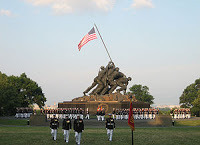 Some other great sites to visit are:
Some other great sites to visit are:
Christian Military Wives
Wives of Faith
We Serve Too!


Deborah is the author of a Christian non-fiction book titled "Mission Possible". It is written for women who love the Lord Jesus, but their spouse doesn't share their passion. It will encourage and challenge the reader to embrace God's promises for their spouse and future together.
Published on November 08, 2010 09:35
November 4, 2010
Mary & Martha - A Tale of Two Sisters (Part 2)
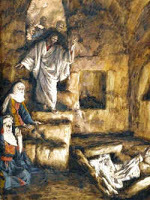 This is a continuation from Mary & Martha Part 1 - (posted earlier)
This is a continuation from Mary & Martha Part 1 - (posted earlier)Martha also exhibited great faith after watching her brother Lazarus die. In John chapter 11, we're told Jesus purposely stayed away from Bethany for two more days after He was told her brother was sick. He did this that His Glory might be manifested for their benefit (vs. 14-15). In John 11 verses 21-22 Martha said, "Lord, if You had been here, my brother would not have died. But even now I know that whatever You ask of God, God will give You." Jesus answered her, "Your brother will rise again." To which Martha said, "I know that he will rise again in the resurrection at the last day." Then Jesus unveiled His Glory to her and said, "I am the resurrection and the life. He who believes in Me, though he may die, he shall live. And whoever lives and believes in Me shall never die. Do you believe this?" Martha then says, "Yes, Lord, I believe that You are the Christ, the Son of God, who is to come into the world." With that incredible encounter, she goes to her sister who is wrought with grief and shares the news secretly that The Teacher has come and is calling for her. What love and compassion she had for her sister – confronting her friend and Savior about His delay in what seemed to be a heartbreaking catastrophe.
Mary then runs to Jesus, just outside of town, where onlookers assumed she was venturing out to the tomb of her deceased brother for a good cry. When she found Jesus, she fell at His feet, crying, and said, "Lord, If You had been here, my brother would not have died." She watched as Jesus wept for her brother, and His beloved friend Lazarus. But they were not tears of sadness. He would ask that the stone that hid his body be rolled away – to which Martha blurted out, "Lord, by this time there is a stench, for he has been dead four days." Martha, Martha… Sounds familiar doesn't it? Looking again at the passage in Luke 10, Jesus lovingly rebuked Martha for being worried and troubled about many things. Here in John 11 He reminds her of what He said to her previously concerning the glory of God being manifested. And so they all witnessed the resurrection of Lazarus.
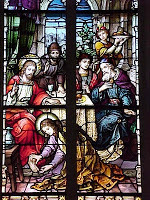 Mary, not saying a word, watched as her brother walk forth from the grave, loosed from the cloth wrapping that enveloped him. This was the same woman who, just a few days later, while dining again with her sister Martha and her now infamous brother Lazarus, brought out a very expensive and ornate alabaster flask containing oil of spikenard, and anointed the Lord (John 11:2). It was the ultimate sign of extravagant giving unto her Lord and Savior as she lavishly doused Him. Just as she had previously pleased Him by sitting at His feet, and listening to His teaching (by choosing that good part – Luke 10:42), she similarly pleased Him with her gift from a heart of true worship. Jesus said in Mark 14:8-9, "She has done what she could. She has come beforehand to anoint My body for burial. Assuredly, I say to you, wherever this gospel is preached throughout the whole world, what this woman did will also be spoken of as a memorial to her." John 12:1-11 tell us that it was six days prior to the Passover, that Jesus came to Bethany, had supper with Mary, Martha and Lazarus, and delighted in Mary's act of worship as the house was filled with the fragrant oil.
Mary, not saying a word, watched as her brother walk forth from the grave, loosed from the cloth wrapping that enveloped him. This was the same woman who, just a few days later, while dining again with her sister Martha and her now infamous brother Lazarus, brought out a very expensive and ornate alabaster flask containing oil of spikenard, and anointed the Lord (John 11:2). It was the ultimate sign of extravagant giving unto her Lord and Savior as she lavishly doused Him. Just as she had previously pleased Him by sitting at His feet, and listening to His teaching (by choosing that good part – Luke 10:42), she similarly pleased Him with her gift from a heart of true worship. Jesus said in Mark 14:8-9, "She has done what she could. She has come beforehand to anoint My body for burial. Assuredly, I say to you, wherever this gospel is preached throughout the whole world, what this woman did will also be spoken of as a memorial to her." John 12:1-11 tell us that it was six days prior to the Passover, that Jesus came to Bethany, had supper with Mary, Martha and Lazarus, and delighted in Mary's act of worship as the house was filled with the fragrant oil. Mary and Martha
were not unlike many others who served the cause of Christ throughout the generations that followed His death. Women have a special place in the Heart of God. There are Marys and Marthas in our congregations. We all know someone that exemplifies service and hospitality to the Body of Christ, as well as prayer warriors and worshipers that reside in His Throne room.
Mary and Martha
were not unlike many others who served the cause of Christ throughout the generations that followed His death. Women have a special place in the Heart of God. There are Marys and Marthas in our congregations. We all know someone that exemplifies service and hospitality to the Body of Christ, as well as prayer warriors and worshipers that reside in His Throne room. My prayer is that I would be known as a little bit of both… Passionate towards the things of God in a world that would call Mary and Martha "outdated"…

Published on November 04, 2010 08:45
November 1, 2010
Mary & Martha - A Tale of Two Sisters (Part 1)
 The town of Bethany was near Jerusalem on the eastern slope of Mt. Olivet.
Mary and Martha
, along with their brother Lazarus, were close personal friends of the Lord Jesus. It is thought that they might have grown up in the part of Galilee where Jesus had lived, and moved to the town of Bethany at a later date. They held a special place in Jesus' heart, as evidenced in the Scriptures (John 11:3; 5).
The town of Bethany was near Jerusalem on the eastern slope of Mt. Olivet.
Mary and Martha
, along with their brother Lazarus, were close personal friends of the Lord Jesus. It is thought that they might have grown up in the part of Galilee where Jesus had lived, and moved to the town of Bethany at a later date. They held a special place in Jesus' heart, as evidenced in the Scriptures (John 11:3; 5).Both of the gospels of John and Luke tell us Jesus frequented their home, most likely for a hearty meal and much needed fellowship. The narrative in John 11:1-44 tells us of the intimate bond they all shared. Remember, John was one of the three closest disciples. He was part of the inner circle: Peter, James and John. He had a unique perspective as he watched his Lord interact with people, and lovingly teach them with His life's story. Jesus spent much of His earthly ministry traveling the hillsides in the surrounding region of Galilee, which bordered the Sea of Galilee. There He preached His first sermon, performed His first miracle, called His first disciples, and spent the majority of His time as a traveling preacher and teacher.
Mary and Martha were sisters with very different personalities. As it is with most sisters, they probably got on each others nerves. Martha is thought to have been a widow, as we are told it was her house in Luke 10:38. Perhaps she was the housekeeper and caretaker of it, as it is also referred to as Simon (the leper's) house in Mark 14. Martha might have also been the eldest daughter – which may explain her great empathy for her sister's well-being (John 11:19-20), as well as her overt agitation with her sister's lack of concern for the dinner preparations (Luke 10:39-40). Martha had a very close relationship with Jesus, as evidenced by her willingness to confront the Lord in such a manner as to "vent" to Him about Mary. In Luke 10:40 she said, "Lord, do You not care that my sister has left me to serve alone? Therefore tell her to help me." Wow, what nerve she had – demanding anything from Jesus! She was definitely flustered as she stormed about the kitchen, full of simmering pots, a stone oven, and a table full of vegetables and grains.
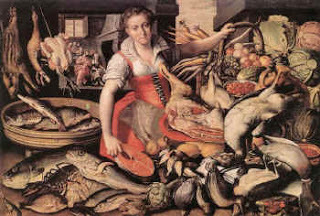 .
. Martha was well organized and was the "take-charge" person. I have always liked Martha because I relate to her so much. I'm a doer – a servant at heart. I see a need and I try to meet it. I like to come alongside and help. Lend a hand. Get 'er done mentality. Martha was probably a great cook and hostess. She no doubt spent many hours in preparation for Jesus and His disciples to dine with them during His ministry on earth. I have always read the passage about Martha being "distracted with much serving" and thought to myself, "Well, it's not going to get done all by itself!" Yep, that's me…The good, the bad, and the ugly. But, as Martha observed her sister sitting near their honored guest, instead of looking at her with distain, you'd think it would have piqued her interest in what He was saying.
As I spend more time in God's Word, and mature as a Christian, I relate more and more to Mary. I love to study Scripture and learn about our Lord Jesus. I want to sit at His feet and glean all I can directly from Him. As I grow older, I am less concerned with what the house looks like, and more concerned with my heart's condition, and the inside of my spiritual temple. I am slowly coming to the realization that I need to emulate Mary more and more. I need to take time to build that intimate relationship with Jesus. I need a balance of Mary and Martha in my life. What about you?
I will continue this compare and contrast of Mary and Martha in Part 2. Stay tuned...

Published on November 01, 2010 07:34
October 26, 2010
Night of the Living (not so) Dead
 Halloween is a culturally popular holiday observed on October 31st. It was a Celtic pagan festival, and then became the Christian holiday -
All Saints' Day
, but today is a secular celebration. Halloween activities include trick-or-treating, wearing costumes, carving Jack-o'-lanterns, apple bobbing, visiting haunted attractions, committing pranks, telling ghost stories or other frightening tales, and watching horror films.
Halloween is a culturally popular holiday observed on October 31st. It was a Celtic pagan festival, and then became the Christian holiday -
All Saints' Day
, but today is a secular celebration. Halloween activities include trick-or-treating, wearing costumes, carving Jack-o'-lanterns, apple bobbing, visiting haunted attractions, committing pranks, telling ghost stories or other frightening tales, and watching horror films.Wikipedia, the on-line encyclopedia, has this to say about Halloween: "The word Halloween is first attested in the 16th century and represents a Scottish variant of the fuller All-Hallows-Even ("evening"), that is, the night before All Hallows Day. Although the phrase All Hallows is found in Old English (ealra hálȝena mæssedæȝ, the feast of all saints), All-Hallows-Even was not attested until 1556.
In traditional Celtic Halloween festivals, large turnips were hollowed out, carved with faces and placed in windows to ward off evil spirits. The carving of pumpkins is associated with Halloween in North America where pumpkins are both readily available and much larger – making them easier to carve than turnips. Many families that celebrate Halloween carve a pumpkin into a frightening or comical face and place it on their doorstep after dark. The practice of dressing up in costumes and begging door to door for treats on holidays, dates back to the Middle Ages. Trick-or-treating resembles the late medieval practice of souling, originating in Ireland and Britain. Poor folk would go door to door on Hallowmas (November 1st), receiving food in return for prayers for the dead on All Souls Day (November 2nd).
 The early Christian church moved a festive celebration called All Saints' Day from May to November 1 and renamed it All Hallows' Eve, from which we get the word Halloween. This was an overt attempt on the part of believers to infiltrate pagan tradition with the truth of the gospel. It was a bold evangelistic move designed to demonstrate that only the power of the resurrected Christ could protect men and women from the destructive ploys of satan and his demons.
The early Christian church moved a festive celebration called All Saints' Day from May to November 1 and renamed it All Hallows' Eve, from which we get the word Halloween. This was an overt attempt on the part of believers to infiltrate pagan tradition with the truth of the gospel. It was a bold evangelistic move designed to demonstrate that only the power of the resurrected Christ could protect men and women from the destructive ploys of satan and his demons.An article posted on ChristianityToday.com in 2009 cited a Barna Research study which had this to say:
"The majority of American Christians do not believe that satan is a real being or that the Holy Spirit is a living entity, the latest Barna Research survey found. Nearly six out of ten Christians either strongly agreed or somewhat agreed with the statement that satan "is not a living being but is a symbol of evil," the survey found. 40 percent strongly agreed with the statement while 19 percent of American Christians somewhat agreed. In contrast, about 35 percent of American Christians believe satan is real. 20 percent strongly disagreed with the statement that satan is merely symbolic and about one-tenth (9 percent) somewhat disagreed. The remaining 8 percent of American Christians responded they were unsure what to believe about the existence of satan."
How did the enemy of our souls achieve such numbers? The answer is deception. It all started in the garden. The devil found his method so successful, that he's never changed it.
 What can we as believers do to counter-balance a society that deems Halloween "harmless?" For starters, we can have an open door for evangelism and education. The deception of a holiday such as Halloween, with its witches, vampires, demons, skeletons, and overall theme of evil, can become an opportunity to demonstrate the dynamic power of Christ to redeem us from death. Halloween distorts the reality of true spiritual warfare, and glorifies the dark side of the spiritual world. However, we can tell them about the One who triumphed over evil, and who came to give us a purpose, and a God-given destiny.
What can we as believers do to counter-balance a society that deems Halloween "harmless?" For starters, we can have an open door for evangelism and education. The deception of a holiday such as Halloween, with its witches, vampires, demons, skeletons, and overall theme of evil, can become an opportunity to demonstrate the dynamic power of Christ to redeem us from death. Halloween distorts the reality of true spiritual warfare, and glorifies the dark side of the spiritual world. However, we can tell them about the One who triumphed over evil, and who came to give us a purpose, and a God-given destiny.If you allow your children to trick-or-treat, focus on costumes that are based on Bible characters, animals, cartoon characters, historical people, and other "non-horror" themes. We need to be careful not to add to the "feeding frenzy" of horror movie characters, demons, witches, ghosts, goblins, the devil, and other evil beings. When my son was little, we would decorate our house with scary "nature things" like spiders & webs, lizards, snakes - and not "death and demon" related items most often found in Halloween-themed stores. We carved pumpkins and displayed them proudly. We handed out candy, tiny Christian toys, and witnessing tracts that were family-friendly – all using the holiday to talk about death and dying, and how Jesus loved them and died for them.
 This Halloween take time to communicate to your children and your friends. Although death and the grave are very real, evil has been defeated by Jesus through His death on the cross. We are more than conquerors over the powers of darkness, demonstrated by Jesus' resurrection (Colossians 2:15), and the Holy Spirit's power in us as believers (Ephesians 6:11-17).
This Halloween take time to communicate to your children and your friends. Although death and the grave are very real, evil has been defeated by Jesus through His death on the cross. We are more than conquerors over the powers of darkness, demonstrated by Jesus' resurrection (Colossians 2:15), and the Holy Spirit's power in us as believers (Ephesians 6:11-17).Jesus is the Resurrection and the Life – He is a picture of the Living (not so) dead – as death had no power over Him, and it will have no power over us who are in Him.
"For if we believe that Jesus died and rose again, even so God will bring with Him those who sleep in Jesus… For the Lord Himself will descend from heaven with a shout, with the voice of an archangel, and with the trumpet of God. And the dead in Christ will rise first." (I Thessalonians 4:14; 16)

Published on October 26, 2010 11:39
October 19, 2010
How To Live Peaceably In A Not So Peaceful World
 "If it is possible, as much as depends on you, live peaceably with all men." (Romans 12:18)
"If it is possible, as much as depends on you, live peaceably with all men." (Romans 12:18)Don't you just hate to be in the middle of a conflict? Or how about living in a home where there is strife and tension? I don't know about you, but I desperately want to live in a tranquil environment. I admit it – when all is said and done, I'm a peacemaker! That being said, I realize I can't always control my surroundings, but I surely have a pivotal role to play in how I relate to others when peace becomes elusive. But what happens when peace is lacking in our other family, personal and work relationships? What if it isn't possible to keep the peace?
In the book of Romans, Paul is addressing believers in Rome concerning their Christian duty to God, to themselves, and to their fellow man. After teaching on the believer's position in Christ, he exhorts them to live a transformed life, thus bringing glory to God. Beginning in Chapter 12, verse 1, Paul pleads with them to lay down their lives on the altar, as it were, for the sake of Christ. By giving over their own bodies as sacrifices, they would relinquish any right to their own destiny or desires. Their offering is purely voluntary, and thus, honoring to God.
The great bible commentator, Matthew Henry had this to say about the Romans passage: "Study the things that make for peace... peace without purity is the peace of the devil's palace."
When we endeavor to keep the unity of the Spirit in the bond of peace (Ephesians 4:3), we have done so without offending God and wounding our conscience. We have a dire responsibility – a holy charge if you will – to be at peace with all men, but especially in the Lord's house. This charge conveys the urgency of nothing being left undone on our part, in order to preserve that peace. If you want to focus your worship on God, you'll have to make peace with your fellow man. In Matthew 5:23 Jesus says, "Therefore, if you bring your gift to the altar, and there remember that your brother has something against you, leave your gift there before the altar, and go your way. First be reconciled to your brother, and then come and offer your gift." He declared that when you are rightly related to God, you will do things differently from the world's ways. Jesus had just taught the famous sermon on the mount to the multitudes that surrounded Him on the hillside, including the beatitude; "Blessed are the peacemakers, for they shall be called the sons of God." Why are the peacemakers blessed? Because they are submitted to God – under His mighty hand – useful for the Kingdom. They have rightly rejected their right to their own way. They have peaceably humbled themselves unto God (James 4).
 Hebrews 12:14 instructs us to, "Pursue peace with all men, and holiness, without which no one will see the Lord: looking diligently lest anyone fall short of the grace of God; lest any root of bitterness springing up cause trouble, and by this many become defiled…" Peace and holiness go hand in hand. Proverbs 4:23 declares, "Keep your heart with all diligence, for out of it spring the issues of life." Psalm 24 says, only "he who has clean hands and a pure heart" can stand in the presence of God.
Hebrews 12:14 instructs us to, "Pursue peace with all men, and holiness, without which no one will see the Lord: looking diligently lest anyone fall short of the grace of God; lest any root of bitterness springing up cause trouble, and by this many become defiled…" Peace and holiness go hand in hand. Proverbs 4:23 declares, "Keep your heart with all diligence, for out of it spring the issues of life." Psalm 24 says, only "he who has clean hands and a pure heart" can stand in the presence of God. Preserving peace often entails a sacrifice on your part. Sometimes it means "biting your tongue" and swallowing unpleasant words to keep from spewing them out. We are to impart grace to the hearers (Ephesians 4:29), and season our speech with salt, knowing how to answer those who are curious about our walk with the Lord, thus encouraging dialog in a peaceful manner. Remember, we are still a "work in progress" and in the process of sanctification.
Faith and patience will enable you to follow after peace and holiness. Be sure to never discard a conviction, if God brings to mind something that He wants you to do to foster peace in a situation. Don't have an obstinate attitude – realize that you will be held accountable to God for dismissing a perfectly good solution to "making peace" with your brother.
Finally, here are four (4) brief things to keep in mind with regards to living in peace…
Don't be judgmentalLook for common groundPick your battles wiselyAlways defer to the Holy Spirit's leading
Remember, others are depending on you to be a peacemaker… If you are God's child, you have all you need to be successful within God's sovereign plan. Make it a point to do all you can to foster true peace, that God would receive all the glory!
Published on October 19, 2010 19:48
October 13, 2010
Can You Balance Your Checkbook? Be Reconciled to God...

For He hath made Him to be sin for us, who knew no sin; that we might be made the righteousness of God in Him. (II Corinthians 5:21)
Webster's Dictionary defines reconcile in the following manner: to restore to friendship or harmony; to settle or resolve differences; to make consistent or congruous; to account for – to check against another for accuracy.
I have worked in small business accounting for over twenty years, and one of the first things I learned in Accounting 101 was how to reconcile a bank account. Account reconciliation has to do with making sure that the amount of cash you show in your checkbook is identical to the account balance shown on your bank statement as of the same date. In accounting, the General Ledger is a set of accounts used in accounting to keep track of all the financial transactions of a company. Debits must equal credits – or your ledger will be out-of-balance. If there is a discrepancy, you must find it in order to reconcile your account balances.
 In the Christian life
– Jesus Christ provided the solution for the enormous imbalance on our personal ledger. We were left with a huge discrepancy called "sin", and it was adjusted through His sacrifice on Calvary. He covered our deficit when He imputed His Righteousness on our behalf. He provided the credit entry in order to bring us into perfect balance.
In the Christian life
– Jesus Christ provided the solution for the enormous imbalance on our personal ledger. We were left with a huge discrepancy called "sin", and it was adjusted through His sacrifice on Calvary. He covered our deficit when He imputed His Righteousness on our behalf. He provided the credit entry in order to bring us into perfect balance. While we were in sin, we were at enmity with God. We had no means by which to reconcile ourselves to Him. In his letter to the Romans, Paul says this, "For if when we were enemies we were reconciled to God through the death of His Son, much more, having been reconciled, we shall be saved by His life. And not only that, but we also rejoice in God through our Lord Jesus Christ, through whom we have now received the reconciliation" (Romans 5:10-11). And again in II Corinthians, Paul writes, "Now all things are of God, who has reconciled us to Himself through Jesus Christ, and has given us the ministry of reconciliation, that is, that God was in Christ reconciling the world unto Himself, not imputing their trespasses to them, and has committed to us the word of reconciliation. Therefore, we are ambassadors for Christ, as though God were pleading through us: we implore you on Christ's behalf, be reconciled to God" (II Corinthians 5:18-20).
Two examples of reconciliation come to mind in scripture: the stories of Joseph, and of Hosea.
Genesis chapters 37-47 tell the story of Joseph and how God used him to save his family and the entire nation of Israel at that time. After being betrayed by his brothers, Joseph was sold into slavery in Egypt, where he spent the next thirteen years. He labored for Pharaoh's officer Potiphar while in prison, and gained favor for his release by interpreting Pharaoh's dream when his own wise men could not. Pharaoh was so impressed by the young Hebrew's gift, that he set him as ruler over all the land, and everything he owned. The dream meant that seven good years would be followed by seven years of famine. It hit not only Egypt, but Israel as well. Joseph's family was affected as much as the Egyptians were, and Jacob sent the ten older brothers down to Egypt to see if they could find grain there. Unbeknownst to them, Joseph was now in charge of selling grain, and when he saw them he recognized them immediately, but they did not recognize him. After a series of encounters with his brothers, in which he accused them of being spies, and after they groveled, insisting on their innocence, he put them in prison. They were instructed to bring their youngest brother, Benjamin, who had been left at home with Jacob, their father. Then, after Benjamin had made the journey to Egypt, and being unable to contain his emotions, Joseph finally revealed his identity. He wept so loudly that even Pharaoh was aware of what was taking place in his residence.
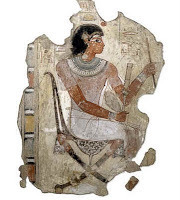
The reunion was complete. They sent for their father Jacob, who could scarcely believe that his son Joseph was still alive. Jacob journeyed to Egypt, reunited with the son he had loved so much, and met Joseph's two sons, Ephraim and Manasseh for the first time. What a beautiful picture of love and restoration, of forgiveness and reconciliation. In response to his brothers' fear, he said to them, "Do not be afraid, for am I in the place of God? But as for you, you meant evil against me; but God meant it for good, in order to bring it about as it is this day, to save many people alive" (Genesis 50:19-20).
The book of Hosea is the first of the Minor Prophets. Hosea means "May the Lord save". Hosea was a native of Israel. He regarded Israel, which at that time referred to the northern part of the Jewish homeland, as being corrupt and evil. Hosea prophesied during the concluding years of Jeroboam II (about 783 - 743 BC). He was more tender-hearted than the stern Amos. Hosea loved the people whom he was compelled to condemn, as evidenced by his writing style. Hosea was commanded to take a wife, Gomer, who would become a prostitute as an example of God's relationship with Israel. Hosea was to manifest God's patience and unconditional love.
Hosea's home life is described, and it is a mirror image of the nation of Israel and its relationship to God at that time. Hosea's wife had left home for a life of prostitution, and Israel had turned away from God and pursued false gods. Hosea continually preached to Israel saying, "Come, and let us return to the Lord; for He has torn, but He will heal us; He has stricken, but He will bind us up. After two days He will revive us; on the third day He will raise us up, that we may live in His sight. Let us know, let us pursue the knowledge of the Lord…" (Hosea 6:1-3). Hosea continued to love his wife, and finally brought her home again. God would also continue to love Israel, and one day, restore favor unto her. Reconciliation would take place and God would forever embrace her with His Love.
Remember, Jesus Christ is the bridge to reconciliation for us. It is through His Blood that we are brought near to God - "Therefore, having been justified by faith, we have peace with God through our Lord Jesus Christ, through whom also we have access by faith into this grace in which we stand, and rejoice in hope of the glory of God" (Romans 5:1-2). Today is the day! Be reconciled to God…
Published on October 13, 2010 21:14
October 6, 2010
Faith as a Mustard Seed
 In Luke 7:2-10, we find the story of the Roman centurion. A parallel passage is found in Matthew 8:5-13, with a slight variation in the details. Nonetheless, both biblical accounts give us great insight into extraordinary "faith in action."
In Luke 7:2-10, we find the story of the Roman centurion. A parallel passage is found in Matthew 8:5-13, with a slight variation in the details. Nonetheless, both biblical accounts give us great insight into extraordinary "faith in action."In New Testament biblical times, a centurion was the commander of one-hundred soldiers in the Roman army. This particular centurion lived in Capernaum, a thriving town on the Sea of Galilee, and had been instrumental in building a synagogue for the Jews there. Though he was a gentile, he had a great affinity for the people of Capernaum, and was a godly man, well respected by all.
The centurion was endeared to his servant, who was sick with the palsy (paralysis). The local physicians were unable to help him. This particular servant was very valuable, which is perhaps why he was compelled to seek out the infamous "Great Physician" to heal him. He even had the elders of the Jews intercede for his servant – recognizing that he was unworthy to approach Jesus with his request in person.
As Jesus neared the centurion's household, his friends relayed his message to Him, saying, "Lord, do not trouble Yourself, for I am not worthy that You should enter under my roof. Therefore I did not even think myself worthy to come to You. But say the word, and my servant will be healed. For I also am a man placed under authority, having soldiers under me. And I say to one, 'Go,' and he goes; and to another, 'Come,' and he comes; and to my servant, 'Do this,' and he does it."
 He showed the Lord great respect, recognizing His authority was from God. He assumed a position of humility as he voiced his concerns and request. Haughtiness never earned favor with anyone. He trusted the Lord to perform all that was necessary for his servant's healing. He recognized that Jesus, in His physical form, wasn't needed to heal his beloved servant.
He showed the Lord great respect, recognizing His authority was from God. He assumed a position of humility as he voiced his concerns and request. Haughtiness never earned favor with anyone. He trusted the Lord to perform all that was necessary for his servant's healing. He recognized that Jesus, in His physical form, wasn't needed to heal his beloved servant. Verse 9 is the key verse in this story. Jesus marveled at the centurion's great faith! He admonished the crowd as He said, "I say to you, I have not found such great faith, not even in Israel!" Lastly, we see the centurion's servant healed, by the Word of the Lord, at the very hour it was proclaimed.
Below is an excerpt from MISSION POSSIBLE – Chapter 3 – Faith as a Mustard Seed. Mission Possible is a book for women who are unequally-yoked in marriage. Using God's Word, it offers the reader hope and encouragement, while applying Biblical truths.
Jesus said, "To what shall we liken the kingdom of God? Or with what parable shall we picture it? It is like a mustard seed which, when it is sown on the ground, is smaller than all the seeds on the earth; but when it is sown, it grows up and becomes greater than all herbs, and shoots out large branches, so that the birds of the air may nest under its shade" (Mark 4:30-32). When we have faith so small it seems insignificant, God can grow it into something sturdy and supportive that even others can "nest in". In Matthew 17:20 Jesus again said, "… for assuredly, I say to you, if you have faith as a mustard seed , you will say to this mountain, 'Move from here to there,' and it will move; and nothing will be impossible for you." All things are possible with God!
 One of my daily devotionals, "Streams in the Desert" by L.B. Cowman, has an entry by an unknown author named C.H.P. He talks about a passage written by Paul in the book of Galatians: "Before this faith came, we were held prisoners …locked up until faith should be revealed" (Gal. 3:23 NIV). We are set aside for a time to learn a more excellent way of faith.
One of my daily devotionals, "Streams in the Desert" by L.B. Cowman, has an entry by an unknown author named C.H.P. He talks about a passage written by Paul in the book of Galatians: "Before this faith came, we were held prisoners …locked up until faith should be revealed" (Gal. 3:23 NIV). We are set aside for a time to learn a more excellent way of faith. Moses, Joseph, Paul, Silas, and even John all learned about being "put aside" for a season to be locked-up to faith. Commit your circumstances to God. praise Him, and claim Romans 8:28 that "He will work all things to good for those who love Him and are the called according to His purpose." Isaiah 64:4 promises that God "acts on behalf of those who wait for Him." Others will receive insight and blessings because you were "locked-up" to learn the way of faith .
Hebrews 11 has been called the "Faith Chapter". Paul writes, "By faith we understand that the worlds were framed by the word of God, so that the things which are seen were not made of things which are visible." (Hebrews 11:3) We can frame our husband with the Word of God by speaking into existence his salvation. God's Word will not return void. Isaiah 46:11 states, "Indeed I have spoken it; I will also bring it to pass. I have purposed it; I will also do it." II Corinthians 1:20 states "For all the promises of God in Him are Yes, and in Him Amen, to the glory of God through us." Amen means so be it! God doesn't promise and fall through.
Mission Possible is available through Deborah's website at http://www.Godmissionpossible.com and you can view a portion of it here on her Blog through the Bookbuzzr viewer (below).
Published on October 06, 2010 11:10
October 1, 2010
Book Award for "Mission Possible"
 It is with a humble heart and much gratitude that I announce my first Book Award.
It is with a humble heart and much gratitude that I announce my first Book Award. "Mission Possible" has been awarded the 2010 Gold Award Winner for Best Christian Non-Fiction Book.
You can view it at the Readers Favorite website (below)
♠
http://bit.ly/RFaszySf
The contest features book entries in over 40 genres - both Fiction and Non-fiction categories.
Readers Favorite was founded by Debra Gaynor to provide readers with quality books, and to help authors with honest reviews of their work and to assist them in obtaining more recognition and exposure through a professional Award Contest. Debra has been joined by many volunteer reviewers who share her passion for reading and desire to help authors. As the owner of a very successful book reviewing website, Debra recently joined forces with several contest judges, web developers, and internet advertisers, to create Readers Favorite; a comprehensive and easy-to-use hub for authors and readers. One judge is a best-selling author, three-time EPPIE award finalist, two-time former judge,and has been a professional editor for over twenty years. Each of our judges have extensive literary experience, and have come together to join Debra in creating a fair and respected competition. Unlike many book review websites, book reviews on Readers Favorite are free. (excerpt is from Readers Favorite website at http://www.Readersfavorite.com )
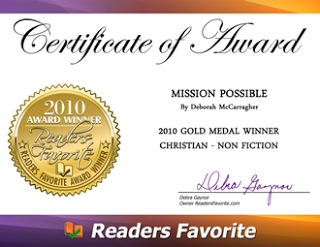
I appreciate all of the congratulations and kudos. However, God deserves all the glory for this little book, and all of the hurting hearts it ministers to.
Published on October 01, 2010 07:18
September 28, 2010
Exercise Profits Nothing…
 As I cautiously approach my fifty-fifth birthday, (or as some affectionately refer to it as the "double-nickel") I am amazed at how quickly the last twenty years have flown by! I am the mother of an adult, married son, who is now a father to a gorgeous little girl (our first grandchild), and I'm sharing our empty-nest with a newly retired husband.
As I cautiously approach my fifty-fifth birthday, (or as some affectionately refer to it as the "double-nickel") I am amazed at how quickly the last twenty years have flown by! I am the mother of an adult, married son, who is now a father to a gorgeous little girl (our first grandchild), and I'm sharing our empty-nest with a newly retired husband.I was listening to a pastor's message on the Christian radio station in my area, and heard a familiar verse that some have used in a humorous way. But as I listened to his sermon, I began to hear and understand it in a whole new light.
I Timothy 4:8 says, "For bodily exercise profits a little, but godliness is profitable for all things, having the promise of the life that now is and of that which is to come."
Another translation puts it this way: "...physical training is of some value, but godliness has value for all things ..."
A brisk walk lowers blood pressure, your cholesterol, and reduces stress on the body. Engaging in some form of regular physical exercise will generally add years to your lifespan. Exercise helps to reduce harmful chemicals in our bodies, and provides a form of abreaction (letting off steam), builds up stamina, counteracts the biochemical effects of stress, and reduces the risk of psychological illness. As Christians, we house the Holy Spirit, and our temple needs to be strong and fit. Health and fitness are godly goals when they are balanced with common sense and right priority. In biblical times, physical exercise was not touted as necessary because people living in that time period generally walked everywhere and performed manual labor on a daily basis.

Verse 7 prefaces the previous passage with the following, "…and exercise yourself rather to godliness."
Spiritually speaking, when we exercise godliness through prayer, bible study, and self-control, we keep our spiritual man healthy. But what good is it if we take care of the physical body, but neglect our spiritual man and coddle our sinful nature?
The eternal value mentioned in verse 8 is the promise of the life that is to come. Paul makes it clear that whatever we are doing for the here and now is indeed profitable – even commendable, but that which is to come, is of more value and lasting. Taking care of the spirit man, which is incorruptible and lives forever, is far more important than maintaining a corruptible body that will slowly decay in this world.
Exercise is not my god, nor do I place my fate in its hands. Jesus is my God! Sure, I still go to body-pump and cycle classes at the YMCA. I faithfully walk my two large dogs every morning for almost an hour. I make it a point to stay active, eat right, and get a good night's sleep. But for me, keeping my spirit man healthy and fit is a higher, God-ordained priority.
Let God speak to you about your "spiritual workout"…
Published on September 28, 2010 19:45



